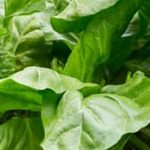What compost is best for vegetable gardens? As a vital component in promoting healthy plant growth, choosing the right type of compost for your vegetable garden can make a significant difference. In this blog post, we will explore the importance of compost in vegetable gardens, discuss the different types of compost available, and provide recommendations for the best compost for growing common vegetables.
Compost plays a crucial role in providing essential nutrients to vegetable plants, improving soil structure, and enhancing overall plant health. With various types of compost available, including homemade, organic, and commercial options, it can be challenging to determine which is best for your garden. Understanding the specific nutrient requirements of vegetable gardens and how different composts can meet those needs is essential in achieving optimal results.
In addition to exploring the different types of compost and their nutrient content, we will also delve into the composting process itself and its impact on the quality of compost for vegetable gardens. By understanding the best practices for applying compost to your garden and considering various factors when purchasing commercially available options, you can make informed decisions to promote thriving vegetable plants.
Types of Compost
When it comes to choosing the best compost for your vegetable garden, there are several options to consider. Homemade compost is a popular choice for many gardeners, as it allows them to recycle organic waste from their kitchen and yard into nutrient-rich soil amendment.
Organic compost, which is made from materials that are free from synthetic chemicals and pesticides, is another excellent option for vegetable gardens. Additionally, commercially available compost options provide convenience and consistency for those who may not have the time or resources to create their own compost.
Homemade compost is typically made by combining kitchen scraps such as fruit and vegetable peels, coffee grounds, and eggshells with yard waste such as grass clippings, leaves, and small branches. This mixture is then allowed to decompose over time, creating a rich and fertile soil additive that can benefit vegetable plants in various ways.
On the other hand, organic compost is made from organic materials such as manure, seaweed, and plant-based materials like grass cuttings and hay. This type of compost ensures that no harmful chemicals or toxins are introduced to the garden bed.
Commercially available compost options come in a variety of forms, including bags of pre-made compost and bulk deliveries from local suppliers. These composts often contain a blend of organic materials that have been carefully processed to ensure consistency and quality. When choosing a commercially available option for your vegetable garden, it’s important to look for products that are certified organic and free from any added chemicals or synthetic additives.
| Types of Compost | Description |
|---|---|
| Homemade Compost | Made from kitchen scraps and yard waste; provides a rich soil additive for vegetable gardens. |
| Organic Compost | Made from organic materials without synthetic chemicals; ensures a natural and healthy addition to the garden bed. |
| Commercially Available Compost | Available in pre-made bags or bulk deliveries; offers convenience and consistency for gardeners. |
Nutrient Requirements
When it comes to vegetable gardens, specific nutrient requirements must be met to ensure healthy plant growth and a bountiful harvest. Different types of compost can help meet those needs by providing essential nutrients such as nitrogen, phosphorus, and potassium. Here are the specific nutrient requirements of vegetable gardens and how different composts can meet those needs:
- Nitrogen: Vegetables require nitrogen for healthy leafy growth and overall plant development. Composts with high nitrogen content, such as those made from green materials like grass clippings and kitchen scraps, can provide the necessary nitrogen for vegetables.
- Phosphorus: Phosphorus is essential for root development, flowering, and fruit production in vegetable plants. Composts that include bone meal or phosphate-rich materials can help meet the phosphorus needs of vegetables.
- Potassium: Potassium is crucial for building plant structure, regulating water use, and promoting disease resistance in vegetable plants. Composts containing potassium-rich ingredients like banana peels or wood ash can supply the necessary potassium for vegetables.
In addition to these primary nutrients, vegetable gardens also benefit from secondary nutrients and micronutrients found in quality compost. Calcium, magnesium, sulfur, iron, zinc, copper, and other trace elements are all important for healthy vegetable growth. Therefore, choosing a compost that provides a broad spectrum of nutrients is essential for meeting the specific nutrient requirements of vegetable gardens.
Ultimately, the best compost for vegetable gardens is one that offers a balanced combination of essential nutrients to support plant growth throughout the entire growing season. Whether it’s homemade compost rich in organic matter or a carefully formulated commercial blend, ensuring that your chosen compost meets the specific nutrient requirements of your vegetables will contribute to a successful harvest.
Composting Process
The composting process is a natural way to recycle organic materials into a rich soil amendment that’s perfect for vegetable gardens. The process begins with gathering organic materials such as kitchen scraps, yard waste, and plant trimmings. These materials are then mixed together in a compost bin or pile, where they undergo decomposition. This decomposition process is carried out by microorganisms like bacteria, fungi, and earthworms, which break down the organic matter into nutrient-rich compost.
The quality of the compost produced is dependent on several factors including the carbon-to-nitrogen ratio, moisture levels, and proper aeration. It’s important to have a balanced mix of both “brown” materials (such as dry leaves and straw) and “green” materials (like food scraps and grass clippings) to ensure a healthy composting process. Adequate moisture and oxygen are also crucial for the microorganisms to thrive and break down the organic matter effectively.
Proper management of the composting process is key to producing high-quality compost for vegetable gardens. Turning the compost pile regularly helps aerate it and speeds up decomposition. Additionally, monitoring the temperature of the pile can indicate whether or not it’s decomposing correctly-ideally, it should reach temperatures between 120-150°F (49-65°C). Overall, understanding the composting process is essential in producing top-notch compost that will benefit your vegetable garden.
| Composting Process Factors | Effect on Compost Quality |
|---|---|
| Carbon-to-nitrogen ratio | Determines how well organic matter breaks down |
| Moisture levels | Affects microbial activity in the compost pile |
| Aeration | Promotes decomposition by providing oxygen to microorganisms |
Best Compost for Different Vegetables
When it comes to choosing the best compost for different vegetables in your garden, it’s important to consider the specific nutrient requirements of each type of plant. Different vegetables have varying needs when it comes to soil composition and nutrient levels, so selecting the right compost is crucial for optimal growth and yield.
Here are some specific recommendations for the best types of compost for growing common vegetables:
- Tomatoes: Tomatoes thrive in nutrient-rich soil, so a well-balanced compost that is rich in organic matter and contains a good mix of nitrogen, phosphorus, and potassium is ideal. Look for compost that includes ingredients like aged manure, leaf mold, and kitchen scraps.
- Peppers: Peppers also benefit from nutrient-rich soil but require slightly less nitrogen than tomatoes. A compost with a higher potassium content can help promote healthy fruit development. Consider using a blend of well-rotted manure, coconut coir, and worm castings.
- Carrots: Carrots prefer lighter soil with plenty of organic matter. A compost with a higher sand or perlite content can help improve drainage while providing essential nutrients. Look for compost that includes ingredients like peat moss, vermiculite, and finely chopped straw.
- Lettuce: Lettuce grows best in soil that is high in nitrogen but still retains moisture well. A compost with a higher nitrogen content and good water retention properties is ideal. Consider using a blend of worm castings, mushroom compost, and seaweed fertilizer.
Remember that these are just general recommendations and you may need to adjust based on your specific growing conditions and soil quality.
Ultimately, the best compost for your vegetable garden will depend on factors such as local climate, soil type, and available resources. Conducting a soil test can help determine any deficiencies or imbalances that need to be addressed with the right type of compost.
By choosing the best compost for each type of vegetable in your garden, you can ensure that your plants have the nutrients they need to thrive and produce a bountiful harvest.
Compost Application
Tips for Timing Compost Application
When it comes to applying compost to vegetable gardens, timing is crucial. The best time to apply compost is in the fall, after harvesting and before winter sets in. This allows the compost to break down over the winter months, enriching the soil and providing essential nutrients for the upcoming growing season. Applying compost in the spring before planting can also be beneficial, as it gives the compost time to integrate into the soil and provide nutrients for young plants.
Considerations for Depth and Frequency
The depth at which compost should be applied to vegetable gardens depends on the quality of the soil and the specific needs of the plants being grown. In general, a layer of compost that is 1-2 inches thick is sufficient for most vegetable gardens. However, for poor quality or depleted soils, a thicker layer of 3-4 inches may be necessary.
As for frequency, applying compost annually is often adequate for maintaining healthy soil and supporting robust plant growth. For particularly nutrient-hungry vegetables, such as tomatoes or peppers, it may be beneficial to apply a fresh layer of compost mid-season to provide an extra boost of nutrients.
Methods of Application
Compost can be applied to vegetable gardens using a variety of methods. One common approach is top-dressing, where a layer of compost is spread evenly over the soil surface. This method is simple and effective, allowing rain and irrigation water to gradually incorporate the compost into the soil.
Another method involves working the compost into the soil by digging or tilling. This ensures that the compost is thoroughly mixed with existing soil, providing an even distribution of nutrients throughout the growing area.
By considering these best practices for applying compost to vegetable gardens, including timing, depth, frequency, and application methods, gardeners can ensure that their plants receive optimal nourishment from this valuable organic material.
Benefits of Using Compost
Using compost in vegetable gardens offers numerous benefits that can significantly improve the health and productivity of your plants. From improved soil structure to increased nutrient availability, compost is a valuable addition to any garden.
Improved Soil Structure
Compost helps to improve the structure of the soil by adding organic matter. This organic matter increases the soil’s ability to hold water and allows for better drainage, which is essential for healthy plant growth. Additionally, improved soil structure also encourages beneficial microbial activity that further enhances soil health.
Increased Nutrient Availability
One of the key benefits of using compost in vegetable gardens is the increase in nutrient availability for plants. Compost contains a wide variety of essential nutrients such as nitrogen, phosphorus, and potassium, as well as micronutrients like calcium, magnesium, and zinc. These nutrients are released slowly over time as the compost breaks down, providing a steady supply of nourishment for your plants.
Enhanced Plant Growth
The use of compost has been shown to promote enhanced plant growth in vegetable gardens. With improved soil structure and increased nutrient availability, plants are better able to establish strong root systems and access the resources they need to thrive. This can lead to healthier plants with increased resistance to pests and diseases, as well as higher yields of fruits and vegetables.
Considerations for Purchasing Compost
In conclusion, choosing the right compost for your vegetable garden is essential for promoting healthy and abundant growth. Homemade compost, organic compost, and commercially available options all have their benefits, but the key is to understand the specific nutrient requirements of your vegetable plants and how different types of compost can meet those needs. Understanding the composting process and its impact on compost quality is also crucial in making the best choice for your garden.
When it comes to specific recommendations for different vegetables, it’s important to consider the individual needs of each type of plant. For example, tomatoes may benefit from a nutrient-rich compost with added calcium to prevent blossom end rot, while carrots may thrive in a lighter compost with less nitrogen to avoid excessive foliage growth at the expense of root development.
By understanding these specific requirements, you can tailor your choice of compost to suit the needs of your vegetable garden.
Furthermore, when considering purchasing commercially available compost, it’s essential to look for reputable brands that offer high-quality products. Consider factors such as the ingredients used, any additional nutrients or amendments included, and customer reviews or recommendations. By paying attention to these considerations and making an informed decision about which type of compost is best for your vegetable garden, you can set your plants up for success and enjoy a bountiful harvest in due time.

If you’re looking to get into vegetable gardening, or are just looking for some tips on how to make your current garden better, then you’ve come to the right place! My name is Ethel and I have been gardening for years. In this blog, I’m going to share with you some of my best tips on how to create a successful vegetable garden.





